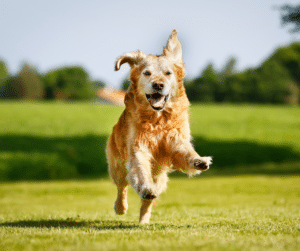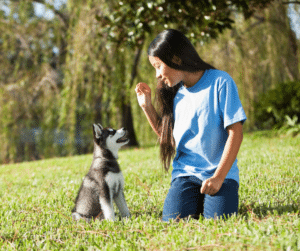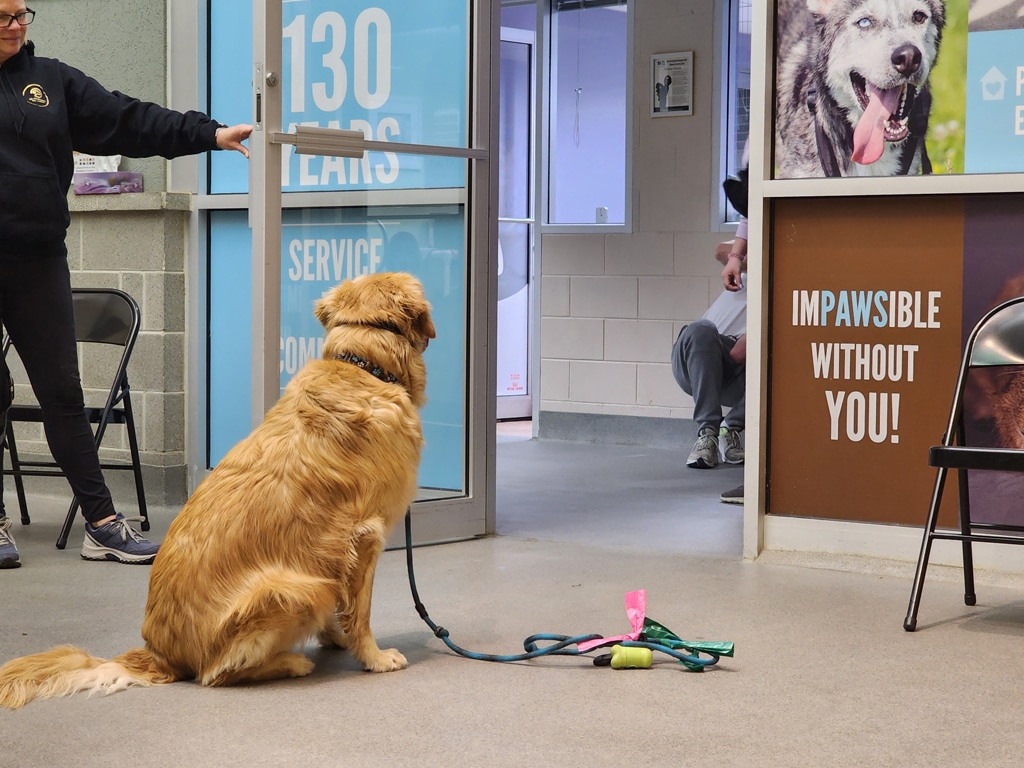The Unrivalled Benefits of a Well-Trained Dog
Embarking on a journey with a well-trained canine companion unlocks a world of shared joy and mutual understanding. Professional dog training isn’t just about teaching basic commands; it’s a comprehensive approach to enhancing the bond between you and your pet.
The Essence of Dog Training
Delving into the core of dog training reveals it’s much more than teaching a dog to sit or stay on command. It’s about fostering a deep, communicative bond between you and your pet, enhancing the quality of life for both, and ensuring a harmonious living environment. Let’s explore the psychological foundations of dog training, the importance of socialisation, and the impact of training on a dog’s mental health.
For the Owner
 For owners, the advantages of a well-trained dog are manifold. A dog that responds to commands is inherently safer, reducing the risk of harm in potentially dangerous situations and opening a world of possibilities. Additionally, such dogs are easier to manage, making everyday tasks and outings more enjoyable. The training process itself is rewarding, deepening the bond between dog and owner through shared achievements and understanding.
For owners, the advantages of a well-trained dog are manifold. A dog that responds to commands is inherently safer, reducing the risk of harm in potentially dangerous situations and opening a world of possibilities. Additionally, such dogs are easier to manage, making everyday tasks and outings more enjoyable. The training process itself is rewarding, deepening the bond between dog and owner through shared achievements and understanding.
Understanding Canine Psychology
The first step in effective dog training is understanding canine psychology. Dogs, by their nature, are pack animals with an ingrained understanding of hierarchical structures. Training helps establish you as a leader they can trust, providing your dog with the guidance and structure they need to thrive. Recognising this dynamic is crucial for effective communication and training, allowing you to tap into natural canine instincts.
For the Canine Companion
Training provides dogs with a sense of security and belonging. Knowing what is expected of them reduces anxiety, resulting in a confident, well-adjusted dog. Behavioural issues, such as excessive barking or chewing, are less likely when a dog understands boundaries and commands. This not only improves the dog’s quality of life but also makes them a more sociable and enjoyable companion.
The Role of Socialisation
Socialisation is another critical aspect of dog training, particularly in the early stages of a dog’s life. Proper socialisation involves exposing your dog to a variety of people, animals, environments, and situations. This exposure helps your dog become more adaptable and less fearful in new or unfamiliar situations. A well-socialised dog is not only more confident but also shows reduced levels of anxiety and aggression, making them safer and more pleasant companions.
Training and Mental Health
Training also plays a vital role in a dog’s mental health. Just like humans, dogs need mental stimulation to stay healthy and happy. Training sessions are an excellent way to provide this stimulation, challenging your dog’s mind and preventing boredom. Additionally, the positive reinforcement used in dog training classes strengthens the emotional bond between dog and owner, increasing the dog’s sense of security and belonging.
The Long-term Benefits of Training
 Understanding the essence of dog training illuminates its value beyond simple obedience. It lays the foundation for a lifetime of mutual respect, trust, and companionship. Training teaches dogs self-control, patience, and appropriate social behaviour, making them more adaptable and well-behaved in a variety of situations. For the owner, it offers the peace of mind that comes from having a well-behaved pet, simplifies care and management, and opens up a broader range of activities and experiences to enjoy together.
Understanding the essence of dog training illuminates its value beyond simple obedience. It lays the foundation for a lifetime of mutual respect, trust, and companionship. Training teaches dogs self-control, patience, and appropriate social behaviour, making them more adaptable and well-behaved in a variety of situations. For the owner, it offers the peace of mind that comes from having a well-behaved pet, simplifies care and management, and opens up a broader range of activities and experiences to enjoy together.
Embarking on the Training Journey
Embarking on the journey of dog training is not merely about achieving obedience; it is a profound process of building understanding, trust, and a lasting bond between you and your canine companion. This comprehensive guide aims to illuminate the path to successful dog training through a blend of patience, consistency, positive reinforcement, and joy, ensuring both you and your dog find fulfillment and happiness in the process.
The Significance of Early Training
 Initiating your dog’s training at an early age is pivotal. This early start serves as the cornerstone for their learning, instilling foundational behaviours and habits that pave the way for a lifetime of good manners and adaptability. By beginning training during puppyhood, you’re not just teaching commands; you’re shaping a well-adjusted, sociable adult dog that responds well to a variety of situations and commands.
Initiating your dog’s training at an early age is pivotal. This early start serves as the cornerstone for their learning, instilling foundational behaviours and habits that pave the way for a lifetime of good manners and adaptability. By beginning training during puppyhood, you’re not just teaching commands; you’re shaping a well-adjusted, sociable adult dog that responds well to a variety of situations and commands.
The Power of Consistency and Precision
The essence of effective communication with your dog lies in consistency and precision. Employing a clear and consistent approach in commands, cues, and rewards helps eliminate confusion, enabling your dog to understand and meet your expectations more readily. This clarity facilitates a smoother training process, where lessons are learned more efficiently, and desired behaviours are adopted more rapidly.
Cultivating Patience and Persistence
Patience and persistence are the bedrocks of successful dog training. Every dog has its own learning pace, and acknowledging this is crucial for a positive training experience. Celebrating incremental achievements reinforces progress, fortifying the emotional connection with your dog. This steadfast approach not only enhances the learning curve but also cements a deeper bond of mutual respect and understanding.
The Role of Positive Reinforcement
 Positive reinforcement stands as a cornerstone technique in dog training. Rewarding your dog for desirable behaviour with treats, praise, or playtime encourages repetition of those behaviours, making the training process both effective and enjoyable. This method not only accelerates learning but also promotes a positive association with training, reinforcing your dog’s motivation and eagerness to please.
Positive reinforcement stands as a cornerstone technique in dog training. Rewarding your dog for desirable behaviour with treats, praise, or playtime encourages repetition of those behaviours, making the training process both effective and enjoyable. This method not only accelerates learning but also promotes a positive association with training, reinforcing your dog’s motivation and eagerness to please.
Enriching Training with Enjoyment
Integrating enjoyment into the training regimen transforms it from a task into a delightful shared activity. Designing dog training sessions that are engaging and fun ensures that your dog looks forward to each session with anticipation. This approach not only boosts the efficiency of the training but also deepens the companionship and understanding between you and your dog, making every training moment a stepping stone towards a more harmonious relationship.
Exclusive Resources and Expert Guidance
Our training offers a wealth of resources, including advanced dog training classes in Hamilton, Caledonia and Brantford and private dog training at your home from our team of experts. These resources are designed to equip you with the skills and knowledge necessary to train your dog successfully.
Why Choose Us?
Choosing K9 Principles for your dog training needs guarantees access to trusted, professional expertise with decades of success stories. Our partnership with the Hamilton/Burlington SPCA and our status as the top-rated trainers in Haldimand County speak to our commitment to excellence and the effectiveness of our training methods.
Final Thoughts on The Value of Professional Training
Investing in professional dog training is invaluable, providing benefits that extend beyond basic obedience to enrich the lives of both dogs and their owners. With our expertise in dog training in Hamilton and beyond, we are committed to helping you and your pet enjoy a fulfilling, happy life together.
- Name: K9 Principles
- Address: Haldimand County, Greater Hamilton Area, Burlington and Most of Norfolk County
- Phone: 289 880-3382
- Email: k9principlesinc@gmail.com
- Website: www.k9principles.ca
FAQs
-
Training can begin as soon as you bring your puppy home, typically around 8 weeks old. For older dogs, it’s never too late to start; even senior dogs can learn new behaviours and commands.



